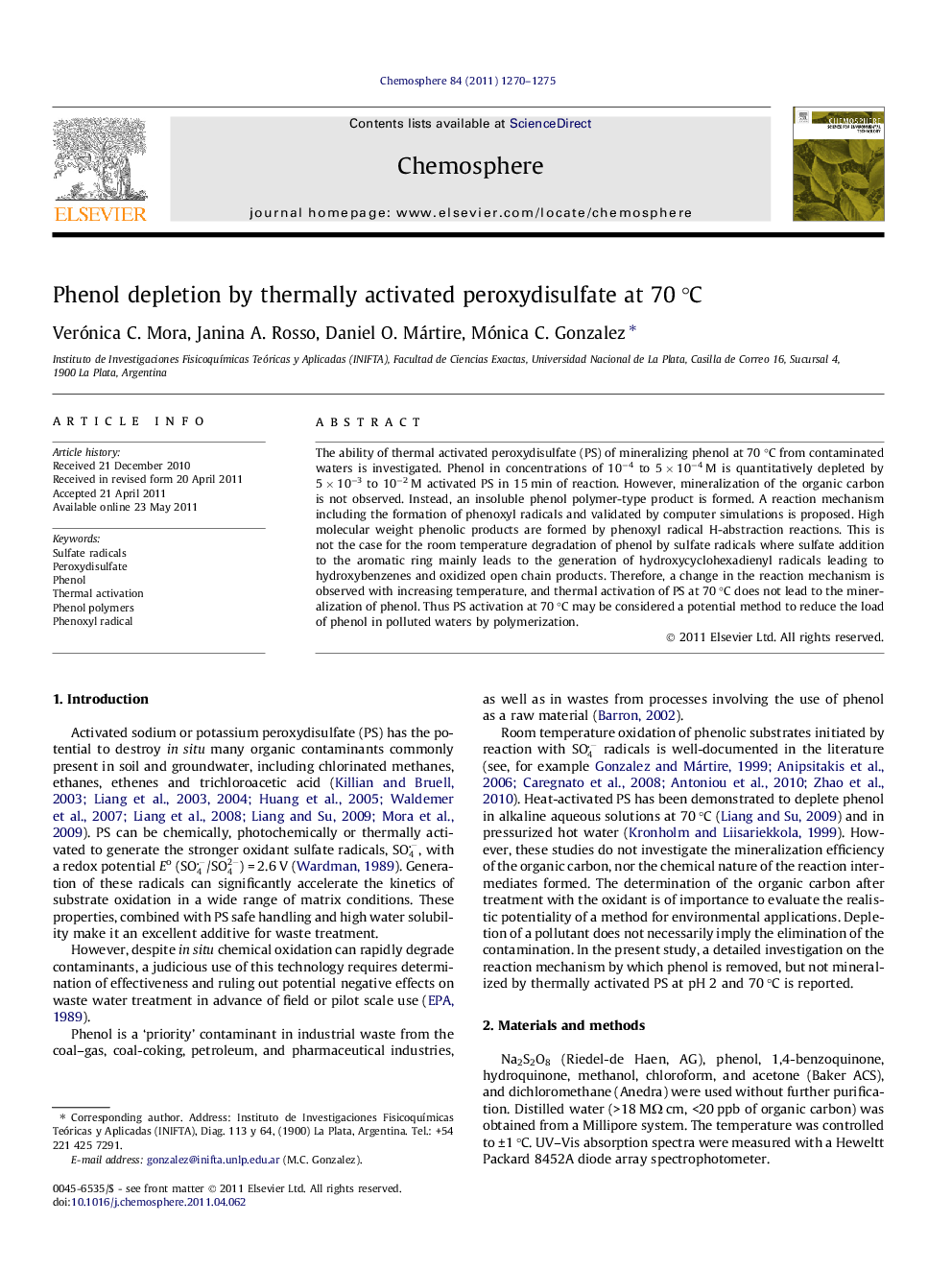| Article ID | Journal | Published Year | Pages | File Type |
|---|---|---|---|---|
| 4410828 | Chemosphere | 2011 | 6 Pages |
The ability of thermal activated peroxydisulfate (PS) of mineralizing phenol at 70 °C from contaminated waters is investigated. Phenol in concentrations of 10−4 to 5 × 10−4 M is quantitatively depleted by 5 × 10−3 to 10−2 M activated PS in 15 min of reaction. However, mineralization of the organic carbon is not observed. Instead, an insoluble phenol polymer-type product is formed. A reaction mechanism including the formation of phenoxyl radicals and validated by computer simulations is proposed. High molecular weight phenolic products are formed by phenoxyl radical H-abstraction reactions. This is not the case for the room temperature degradation of phenol by sulfate radicals where sulfate addition to the aromatic ring mainly leads to the generation of hydroxycyclohexadienyl radicals leading to hydroxybenzenes and oxidized open chain products. Therefore, a change in the reaction mechanism is observed with increasing temperature, and thermal activation of PS at 70 °C does not lead to the mineralization of phenol. Thus PS activation at 70 °C may be considered a potential method to reduce the load of phenol in polluted waters by polymerization.
► Peroxydisulfate activation at 70 °C depletes phenol from contaminated waters. ► The reaction mechanism involves the formation of phenoxyl radicals. ► An insoluble phenol polymer-type product is formed.
